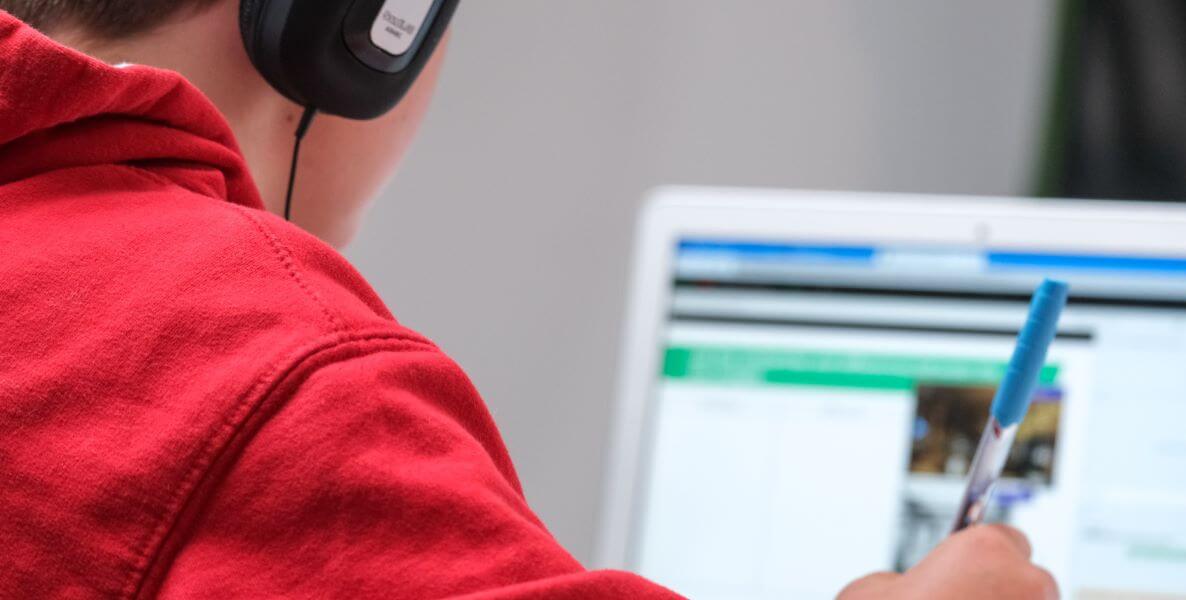How useful is a tool if you don’t know how to wield it? How informative is a book if you can’t read it? How accessible is your internet access if you don’t know how to use it to its fullest capacity?
As our world increasingly turns towards technology, bridging the digital divide grows in its status as a matter of not just local, but international, importance. As we take steps to put physical measures into place — such as making the internet more accessible — it is critical to simultaneously make moves when it comes to markers that are a little less tangible, such as digital literacy.
The inequity of digital literacy
Digital literacy rates across our country point to a correlation between the continuing digital divide and race, education and income. According to a report from the U.S. Department of Education, only 11 percent of White working-aged adults (aged 16 to 65) are digitally illiterate, compared to 22 percent of Black adults and 35 percent of Hispanics. Additionally, 36 percent of foreign-born adults in the U.S. are digitally illiterate, compared to 13 percent of native-born.
Digital inequity is more than not having computers or wires: It is expertise, experience, and access, too.
But the largest disparity comes when factoring in levels of education. Only 5 percent of adults that have attained an associate’s degree or higher are digitally illiterate, while those with a high school diploma came in at 17 percent, and those with less education came in at 41 percent.
Educational opportunities focused on digital skills and open to the community at large, especially in cities like Philadelphia and Camden, NJ, stand to benefit those at the brunt end of the digital divide — which includes many from our society’s most marginalized groups.
Providing access to education
For the past six years, Hopeworks has hosted Camden Code Day: a tech-centered day of educational enrichment for the greater Camden community. The most recent iteration, which took place in September, included workshops covering topics like web design and data visualization. The free event is a safe space for learning and caters to a wide range of skill sets — including those just starting out on their digital journey.
At the end of the day, more than 40 members of the community participated in the event. Four attendees won laptops to bring home with them.
Open opportunities such as these provide members of the community a low-commitment, low-pressure chance to level up their skills and their potential for professional success by learning from industry professionals and corporate partners.
Corporate partnerships make a difference
When it comes to giving back to the community, the big players in the business community also have a role to play. But, they are often not even fully aware of what they have to offer, especially when it comes to education. Hopeworks has worked with many big names in the area, accepting donations and support while helping the companies realize their full community potential in return.
By providing internet access to Hopeworks and leveraging our social enterprise services, Comcast has helped lift many in our community beyond the digital divide. Google provided a specialized training curriculum and certifications, such as Google IT, for our young professionals who may never have had access otherwise. The team from Subaru provided donations and conducted specialized training in advanced java and now QA. Akamai provided Linux training. Dell supplied equipment that makes any and all of this training possible. Esri taught Hopeworks how to use their software, and made accessing the software affordable for the team.
These are just a few of many examples of how the corporate world can help bridge the gap of the digital divide in our community, using capabilities and tools they already have in their repertoire.
As awareness of the digital divide grows and we respond with increasing internet access, we must also remember this second barrier to break through: digital literacy. By creating opportunities for digital education, organizations and companies can help the community work towards remedying this disparity and lifting people up.
Your digital to-do list
Digital inequity is more than not having computers or wires: It is expertise, experience, and access, too. If you have the skills, reach out to Hopeworks or other local tech education nonprofits such as Coded by Kids, Per Scholas, and others to share your skills. If your company has resources, there are even more possibilities, including building a training pathway that leads to employment.
Lawrence Burden is Director of Youth Development at Hopeworks Camden, a nonprofit organization that connects young professionals to life-changing opportunities using technology, education, and entrepreneurship.
The Citizen welcomes guest commentary from community members who stipulate to the best of their ability that it is fact-based and non-defamatory.
![]() MORE ON THE DIGITAL DIVIDE
MORE ON THE DIGITAL DIVIDE



